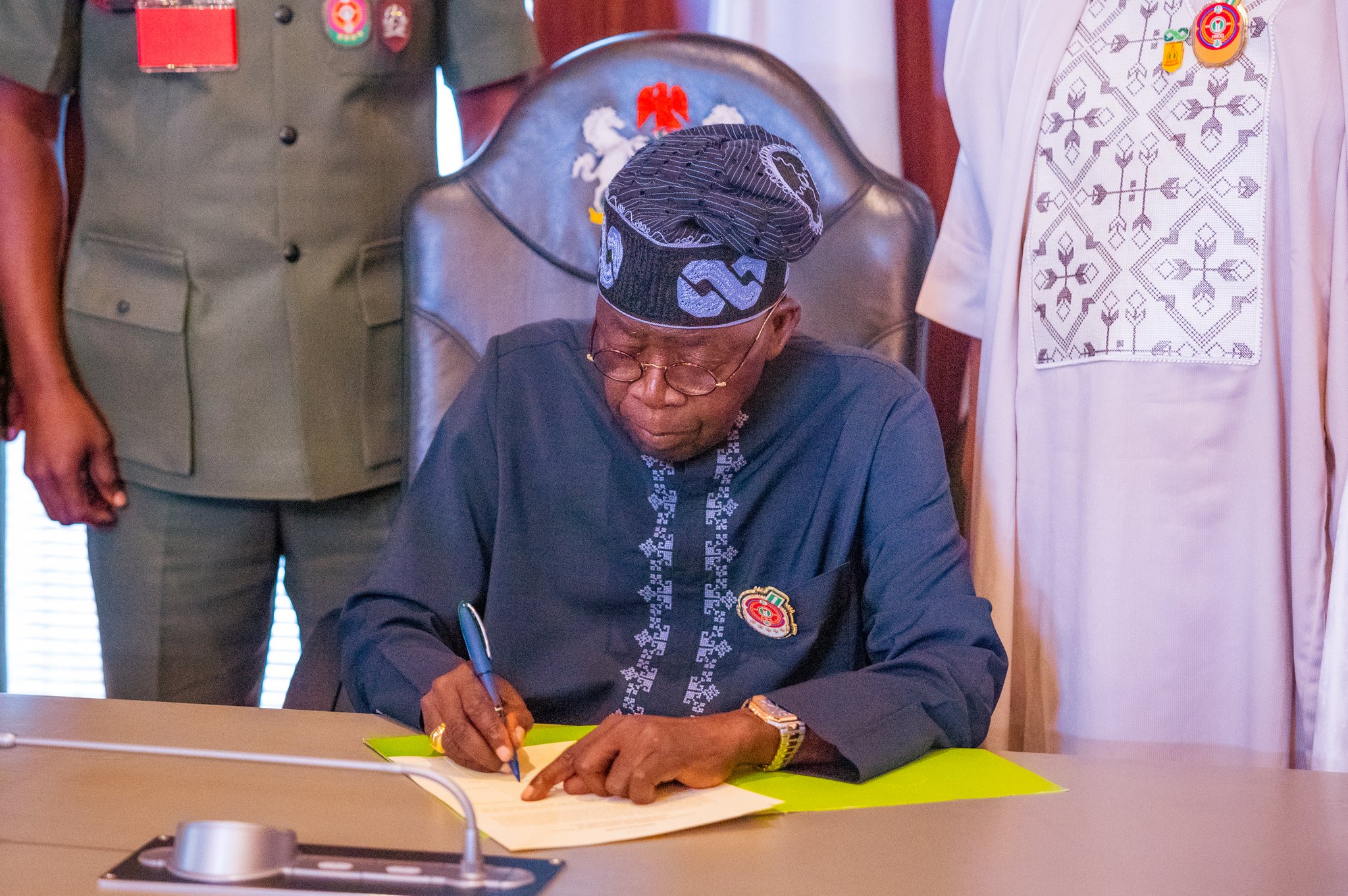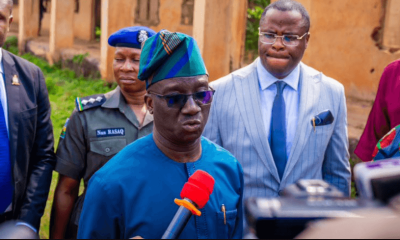Politics
Tinubu: Confusion Rocks CCT As Two Top Northerners Continue Battle For Chairman

There is growing confusion at the Code of Conduct Tribunal (CCT) as embattled chairman Danladi Umar and newly appointed chairman Mainasara Kogo both assert leadership over the tribunal.
Investigations reveal that both Umar and Kogo have officially visited the tribunal and engaged with staff, leaving no clear directive on who is in charge.
President Bola Ahmed Tinubu appointed Kogo as the new CCT chairman on July 13, the same day Omolola Oloworaran was announced as the Director-General of the National Pension Commission (PenCom). However, the controversy surrounding Umar’s removal has caused a noticeable slowdown in tribunal activities.
Despite this, corruption cases involving public servants are still ongoing, with several charges listed for trial or arraignment.
Senior staff members of the tribunal, speaking anonymously, admitted to being uncertain about who to follow. Both men have addressed them, and as civil servants, they are simply awaiting clear instructions.
“We are civil servants and we believe we can work with anyone that comes,” a staff member told Daily Trust.
“We have not seen any letter to the effect of these changes. We believe there is a procedure for the removal and appointment of a new chairman of the CCT.
“We know that the president and the two arms of government have made pronouncements but we don’t know if invisible hands are working on these, but we know there is a process,” he added.
A senior official explained the formal process: any appointee must go through screening by the Federal Judicial Service Commission (FJSC), receive recommendations from the National Judicial Council (NJC), and then obtain presidential approval before Senate confirmation.
The lack of clarity has reportedly left a backlog of files unattended.
“He came today and left and the entire judiciary is now on holiday so we have taken the liberty to adjourn all the outstanding cases to January,” another official said.
Meanwhile, a former tribunal staff member criticized Umar’s continued visits to the office.
The staff asked “Why is he still coming to work seeking to sign some documents and approve payments to contractors?”
He described Umar’s actions as illegal, asserting that he is no longer the tribunal’s chairman.
Following President Tinubu’s announcement of Umar’s removal, both the Senate and the House of Representatives endorsed the decision in plenary sessions held on November 20 and 26, citing allegations of misconduct and corruption.
The resolutions were based on Section 17(3) Part 1, Fifth Schedule of the Nigerian Constitution, and Section 22(3) of the Code of Conduct Bureau and Tribunal Act 2004.
These sections state that: “A person holding the office of chairman or member of the code of conduct tribunal shall not be removed from his office or appointment by the president except upon an address supported by 2/3rd majority of each house of the national assembly praying that he be so removed for inability to discharge the functions of the office in question (whether arising from infirmity of mind or body) or for misconduct or for contravention of this code.”
Legal disputes over Umar’s removal are ongoing. A suit before the Federal High Court in Abuja, filed by Community Rescue Initiative, Toro Concerned Citizens, and Relief Foundation, contends that the resolutions of the Senate and House of Representatives are unconstitutional, null, and void.
Meanwhile, Legal experts have raised concerns about the situation at the CCT.
Sunusi Musa (SAN) argued that the president did not validly announce Umar’s removal, as the constitution requires a two-thirds resolution from both legislative houses. He also noted that Kogo’s appointment lacks NJC approval and formal inauguration.
“Where is he getting the powers to visit the tribunal if he has not been appointed by the NJC and has not been inaugurated as the chairman of the tribunal?” he asked.
Dayo Akinlaja (SAN) added that Kogo’s appointment is not binding without an official letter.
“A letter of appointment would imply that removal has been done, which the person affected could then challenge—not by taking the laws into his hands but through the judicial process.”
Similarly, Haroun Eze, Esq pointed to irregularities in Umar’s removal process.
“The removal did not accord with the procedure for the removal of the CCT chairman and that is why the National Assembly provided that aspect by their resolutions for the removal,” he said.
He argued that the Attorney General of the Federation should have initiated a formal case of misconduct against Umar, providing the National Assembly with the foundation to pass their resolution.












